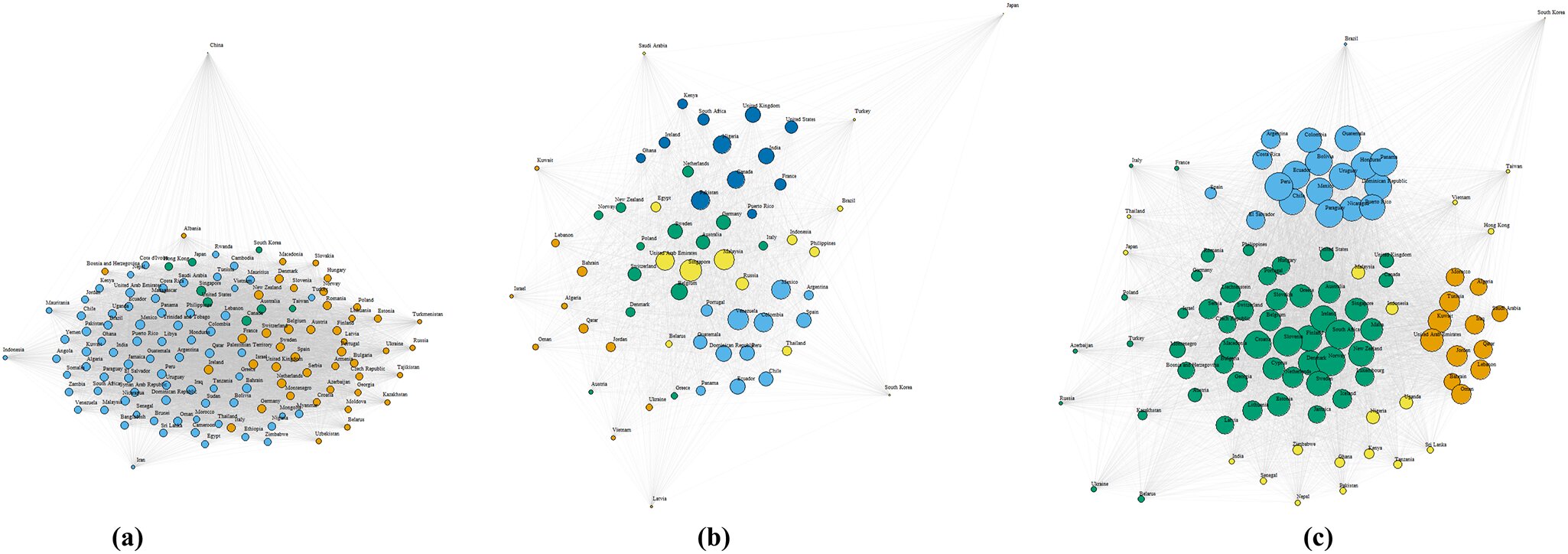Given that its creation, the web has actually been checked out by innovation specialists and also scholars as a method to accessibility details at an international range without needing to get rid of obstacles postured by language and also location. Nonetheless, scientists at the College of Illinois Urbana-Champaign discovered that exactly how individuals worldwide make use of the very same prominent social networks systems and also internet sites continues to be significantly various based upon their language and also location.
A brand-new research study by marketing teacher Harsh Taneja and also journalism teacher Margaret Yee Male Ng builds on previous research study and also takes a look at web intake throughout 124 nations with their use of prominent internet sites, along with Twitter and also YouTube– 2 around the world leading social networks systems.
The outcomes of the brand-new research study are released in the journal PLOS ONE
” The objective of this job was to create means to evaluate which nations are most like each various other in the use of these prominent internet sites and also social networks systems and also to determine aspects that describe the resemblances,” the scientists stated.
The group discovered that language and also location continue to be one of the most significant forecasters of internet use, and also their function on YouTube and also Twitter is equally as considerable as on the broader internet. “This holds true of the internet sites they go to as well as likewise exactly how they make use of social networks,” Taneja stated. “Certain, YouTube is one of the most prominent on-line electrical outlet in a lot of the globe, however individuals in Nepal generally do not enjoy the very same video clips as individuals in the USA.”
The group gathered and also contrasted trending web web traffic information and also making use of hashtags for both most prominent social networks systems– Twitter and also YouTube– and also the 500 most-visited websites making use of Alexa’s Worldwide Ranking in the 124 countries researched.
” We picked to collaborate with Twitter and also YouTube due to the fact that although they are both incredibly popular, they bring in various target markets, so they catch a really vast piece of web usage,” the scientists stated.
” Our evaluation recommends that worldwide internet usage is fairly heterogeneous, whether it is internet site web traffic or in exactly how individuals make use of Twitter or YouTube, with social networks use being also much less comparable general than the use of internet sites,” Ng stated.
Previous research studies have actually revealed that the totally free exchange of details has actually been hindered by federal government guidelines and also defenses in countries like Russia and also China, as an example.
” Nonetheless, federal government policy is not the only factor for the controlled circulation of details,” Taneja stated. “Our research study supplies empirical proof that individuals usually favor material that concentrates on their area and also in their language.”
While making use of information showing trending YouTube video clips and also Twitter subjects by means of hashtags might not completely catch web intake numbers, it functions well as a proxy to determine intake on these systems, the scientists stated.
” A vital caution of this job is that we need to recognize that trending subjects are not simply based upon intake,” Ng stated. “There is some type of a black box that figures out the total photo, however tracking hashtags is an efficient proxy and also much less prejudiced than techniques including geolocation, as an example, due to the fact that numerous individuals do not expose their place while surfing.”
Taneja and also Ng stated the research study is helpful to scientists examining the worldwide circulation of details– and also, notably, false information– and also for internet material manufacturers curious about getting a bigger or even more targeted worldwide target market.
Even more details:
Yee Male Margaret Ng et alia, Internet usage continues to be extremely local also in the age of worldwide system syndicates, PLOS ONE (2023 ). DOI: 10.1371/ journal.pone.0278594.
Journal details:
PLoS ONE
Given by.
College of Illinois at Urbana-Champaign.
Citation:.
Location, language determine social networks and also prominent internet site use, research study discovers (2023, February 9).
gotten 22 February 2023.
from https://techxplore.com/news/2023-02-geography-language-dictate-social-media.html.
This paper undergoes copyright. In addition to any type of reasonable dealing for the objective of exclusive research study or research study, no.
component might be duplicated without the composed consent. The material is offered details functions just.
